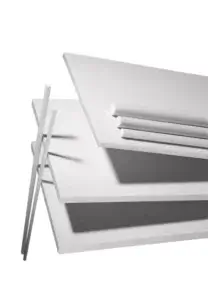- About us
- Semi-finished products
- Sheets
- Solid rods
- Solid rods PVC overview
- Solid rods PE
- Solid rods PP
- Solid rods PET
- Solid rods PBT
- Solid rods ABS
- Solid rods PMMA
- Solid rods PC
- Solid rods PA overview
- Solid rods POM
- Solid rods PSU
- Solid rods PPSU
- Solid rods PEI
- Solid rods PEEK
- Solid rods PVDF
- Solid rods ECTFE
- Solid rods PCTFE
- Solid rods FEP
- Solid rods PFA
- Solid rods ETFE
- Solid Rods PTFE
- Hollow rods
- 4-edge, flat, 6-edge bars
- Transparent tubes
- Standard profiles
- Foils
- Molded tubes
- Welding consumables
- Sustainable plastics
- Delivery Overview Semi-Finished Products
- Finished parts
- Ventilation mouldings
- Machines & devices
- Hot air/warm gas welding devices
- Hot air welding machines
- Welding nozzles
- Welding extruder
- Welding extruder HSK10 DE digital
- Welding extruder HSK10.2 DE digital compact
- Welding extruder HSK18 E
- HSK18 RSX welding extruder
- Welding extruder HSK22 RSX DATA
- HSK26 GSX welding extruder
- Welding extruder HSK28 RSX DATA
- Welding extruder HSK40 E
- HSK40 RSX welding extruder
- Welding extruder HSK60 DE
- Welding extruder HSK60 DE Granules
- Welding extruder HSK60.1 DE Granules
- Welding extruder heat protection
- Welding extruder transport case
- Welding wire extruder line
- Air compressor
- Air heater
- Welding mirror
- Socket welders
- Panel benders overview
- Panel bending machines
- Butt welding machines overview
- Plate welding machines
- Pipe welding machines
- Pipe band saw overview
- Orbital saw
- Auxiliary equipment
- Testing technology
- Resources

